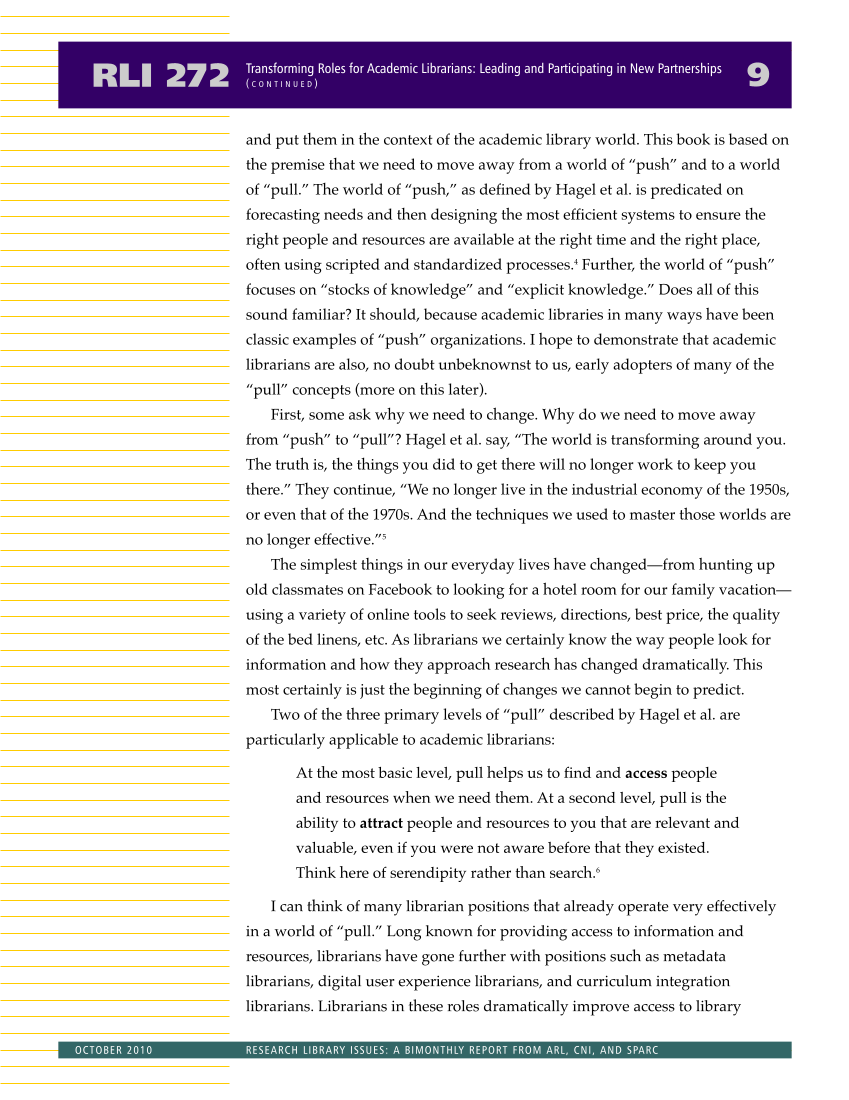and put them in the context of the academic library world. This book is based on the premise that we need to move away from a world of “push” and to a world of “pull.” The world of “push,” as defined by Hagel et al. is predicated on forecasting needs and then designing the most efficient systems to ensure the right people and resources are available at the right time and the right place, often using scripted and standardized processes.4 Further, the world of “push” focuses on “stocks of knowledge” and “explicit knowledge.” Does all of this sound familiar? It should, because academic libraries in many ways have been classic examples of “push” organizations. I hope to demonstrate that academic librarians are also, no doubt unbeknownst to us, early adopters of many of the “pull” concepts (more on this later). First, some ask why we need to change. Why do we need to move away from “push” to “pull”? Hagel et al. say, “The world is transforming around you. The truth is, the things you did to get there will no longer work to keep you there.” They continue, “We no longer live in the industrial economy of the 1950s, or even that of the 1970s. And the techniques we used to master those worlds are no longer effective.”5 The simplest things in our everyday lives have changed—from hunting up old classmates on Facebook to looking for a hotel room for our family vacation— using a variety of online tools to seek reviews, directions, best price, the quality of the bed linens, etc. As librarians we certainly know the way people look for information and how they approach research has changed dramatically. This most certainly is just the beginning of changes we cannot begin to predict. Two of the three primary levels of “pull” described by Hagel et al. are particularly applicable to academic librarians: At the most basic level, pull helps us to find and access people and resources when we need them. At a second level, pull is the ability to attract people and resources to you that are relevant and valuable, even if you were not aware before that they existed. Think here of serendipity rather than search.6 I can think of many librarian positions that already operate very effectively in a world of “pull.” Long known for providing access to information and resources, librarians have gone further with positions such as metadata librarians, digital user experience librarians, and curriculum integration librarians. Librarians in these roles dramatically improve access to library RLI 272 9 Transforming Roles for Academic Librarians: Leading and Participating in New Partnerships ( C O N T I N U E D ) OCTOBER 2010 RESEARCH LIBRARY ISSUES: A BIMONTHLY REPORT FROM ARL, CNI, AND SPARC

































